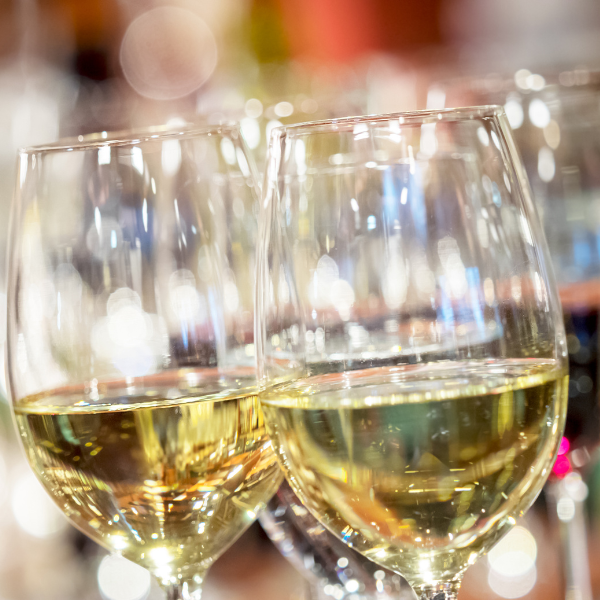
The Link Between Alcohol and Night Sweats in Menopause
Share

Night sweats are a symptom of menopause characterized by sudden bursts of heat and perspiration followed by rapid cooling causing chills. It is believed that hot flashes and night sweats are caused by fluctuating hormone levels before, during, and after menopause. Alcohol can exacerbate the symptoms of night sweats for a number of reasons.
How does alcohol make my night sweats worse?
As you age your tolerance for alcohol decreases. This means that if you are drinking the same amount of alcohol as you did when you were younger, you will likely feel the effects more powerfully.
For everyone (not just women in menopause), there are three major things going on that affect our alcohol tolerance level:
1. Our body holds less water. As we age, our cells' ability to keep water decreases which is why remembering to stay hydrated all day is critical to overall good health, but in particular alcohol tolerance.
2. The level of ADH - alcohol dehydrogenase - the enzyme that breaks down alcohol decreases. If there is less ADH in your body, it means that processing alcohol takes longer and therefore it stays in your system longer.
3. Alcohol is a diuretic. This means that alcohol naturally draws water out of your system (which is why you may be urinating more often when you drink), furthering increasing the blood alcohol concentration.
These facts mean that your alcohol tolerance will decrease and you are likely noticing the effects of alcohol sooner than in your younger years.
Add menopause, hormones, and mix well
When you compound your aging body's alcohol tolerance with menopause, you amplify the problems.
Alcohol interferes with your hormones, and as you enter menopause, it can disrupt your already erratic estrogen levels. On top of that, it can stimulate your cortisol levels, which can further contribute to hot flashes and night sweats.
Finally, alcohol raises your body temperature generally and if you've had too much to drink, flushing and sweating.
When you're in menopause and your estrogen and progesterone levels are declining, it is the imbalance between the two hormones that can lead to unpredictable hot flashes.
Night sweats happen when alcohol is processed more slowly
If you either drink rapidly, and/or you process alcohol more slowly, the end result is that the alcohol stays in your system for longer than it did when you were younger. While it's in your blood stream, it's going to be interfering with your estrogen levels and cortisol levels. These changes in your hormones are going to be triggering hot flashes even more than usual until the alcohol is out of your system.
How to reduce the risk of experiencing night sweats when you drink alcohol
If you're going out for the evening and still want to enjoy a drink or two, here are a few tips for consuming alcohol for as little disruption to your sleep as possible:
1) Drink alcohol in moderation and slowly so that your body can metabolize it more efficiently
2) Stay well-hydrated throughout the day you are planning on drinking and as you consume your alcoholic beverage make sure you drink plenty of water
3) Avoid alcohol altogether. If you know that one drink leads to another and another, it might be best if you don't drink at all. Try a mocktail instead of your favourite tipple - fortunately, more restaurants and bars are adding great mocktails to their list of drinks.
While alcohol may seem like a nice way to relax and unwind after a long day, for many women in menopause it can actually make night sweats worse. If you’re experiencing more severe or frequent night sweats when you drink try our tips above and see if that makes a difference.
Disclaimer: This content is not intended to be a substitute for professional medical advice, diagnosis, or treatment. Always seek the advice of your physician or other qualified health provider with any questions you may have regarding a medical condition. Never disregard professional medical advice or delay in seeking it because of something you have read on this website.
